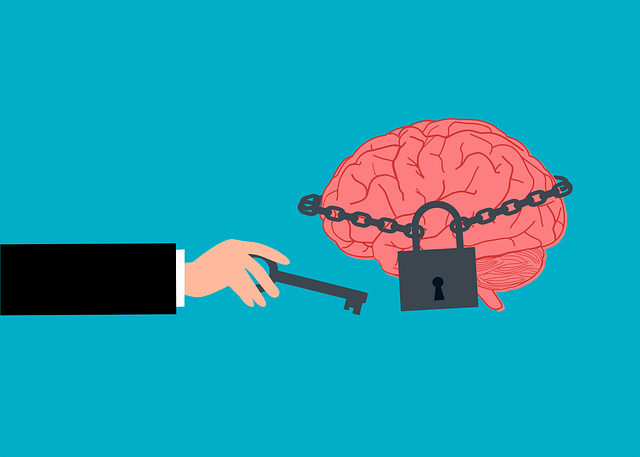Mental illness diagnoses require comprehensive assessments by qualified professionals, utilizing interviews, surveys, and observations. For conditions like Lone Tree Conduct Disorder (LTCD), structured clinical interviews, psychological tests, and medical imaging aid diagnosis, focusing on behavioral modification through therapy. Risk assessment is crucial throughout the process. Professional assistance is vital for navigating LTCD complexities; mental health professionals provide tailored guidance, risk management, cultural competency training, and stress management workshops. Lone Tree Conduct Disorder Therapy offers a personalized, evidence-based approach combining individual counseling and group activities to foster compassion cultivation and resilience building, targeting impulsive and aggressive behaviors linked to underlying mental health conditions. Empowering self-care strategies and accessing support resources like LTCD therapy enhance overall well-being and coping mechanisms tailored to individual needs.
Mental illness diagnosis and treatment navigation can be a complex, daunting journey. This article guides you through understanding mental health diagnoses, highlighting the crucial role of professional assistance in navigating treatment options. We explore approaches like Lone Tree Conduct Disorder Therapy, a specialized strategy, and empower individuals with self-care strategies and support resources to take control of their well-being. By delving into these aspects, we aim to facilitate informed decision-making and improved mental health outcomes.
- Understanding Mental Illness Diagnoses: Breaking Down the Process
- The Role of Professional Assistance in Treatment Navigation
- Lone Tree Conduct Disorder Therapy: A Specialized Approach
- Empowering Individuals to Take Control: Self-Care Strategies and Support Resources
Understanding Mental Illness Diagnoses: Breaking Down the Process

Understanding Mental Illness Diagnoses: Breaking Down the Process
Mental illness diagnoses are not one-size-fits-all. It’s a multifaceted process that requires careful evaluation and consideration from qualified professionals. The first step often involves comprehensive assessments, where mental health experts gather information through interviews, surveys, and observations to gain insight into an individual’s symptoms, history, and behavior. This can include discussions about mood, thoughts, behaviors, and any relevant personal or family history.
These initial assessments help narrow down potential disorders and guide further testing. Common methods include structured clinical interviews, psychological tests, and sometimes medical imaging to rule out physical causes. For conditions like Lone Tree Conduct Disorder, therapists employ specialized techniques tailored to address antisocial behaviors, focusing on self-esteem improvement and confidence boosting through therapy. Risk assessment is a crucial component throughout this process for both the patient and mental health professionals.
The Role of Professional Assistance in Treatment Navigation

Professional assistance plays a pivotal role in navigating the complexities of mental illness diagnosis and treatment. This is particularly crucial for conditions like Lone Tree Conduct Disorder, which requires specialized therapy approaches. Mental health professionals, equipped with extensive knowledge and expertise, offer guidance tailored to an individual’s unique needs. They help patients and their families understand the diagnosis, explore various treatment options, and make informed decisions.
Effective navigation involves risk management planning, a key aspect where professionals can guide individuals through potential challenges. Additionally, healthcare provider cultural competency training ensures sensitive and effective care, addressing diverse patient backgrounds. Stress management workshops organized for these providers further enhance their ability to support patients, fostering an environment that encourages open communication and promotes positive outcomes in mental health treatment journeys.
Lone Tree Conduct Disorder Therapy: A Specialized Approach

Lone Tree Conduct Disorder Therapy offers a specialized approach to addressing conduct disorders, focusing on the unique needs of individuals facing challenges related to impulsive and aggressive behaviors. This therapeutic model recognizes that each person’s journey with conduct issues is personal, often intertwined with underlying mental health conditions like depression prevention, and requires tailored strategies. By fostering compassion cultivation practices and resilience building, this therapy aims to help clients develop healthier coping mechanisms and improve their overall well-being.
The program incorporates evidence-based techniques, combining individual counseling sessions with group activities, to create a supportive environment where participants can explore the roots of their conduct issues while learning effective strategies for managing them. This holistic approach not only addresses the symptoms but also empowers individuals to navigate life’s challenges with enhanced resilience and emotional intelligence.
Empowering Individuals to Take Control: Self-Care Strategies and Support Resources

Empowering individuals to take control of their mental health is a pivotal aspect of navigating diagnosis and treatment. Self-care strategies play a crucial role in this process, enabling people to manage their conditions effectively and foster resilience. This involves adopting healthy habits such as regular exercise, mindfulness practices, and structured routines to improve sleep and diet. By prioritizing self-care, individuals can enhance their overall well-being, boost mood management skills, and build coping mechanisms tailored to their unique needs.
Accessing support resources is equally vital. In addition to seeking professional help from healthcare providers, many find solace in community groups, peer support networks, or therapy options like Lone Tree Conduct Disorder Therapy. These resources offer a sense of belonging and understanding, encouraging open dialogue about mental health challenges. Enhancing mental health awareness through education and training for healthcare provider cultural competency can further ensure inclusive and effective care.
Navigating mental illness diagnoses and treatment can be a complex journey, but with the right support, individuals can find their path to recovery. From understanding the diagnostic process to accessing specialized therapies like Lone Tree Conduct Disorder Therapy, each step is vital. Professional assistance plays a pivotal role in guiding patients through these challenges. Additionally, incorporating self-care strategies and utilizing available support resources empowers individuals to take control of their mental health. By combining expert care with personal resilience, one can navigate this journey with hope and improved well-being.














